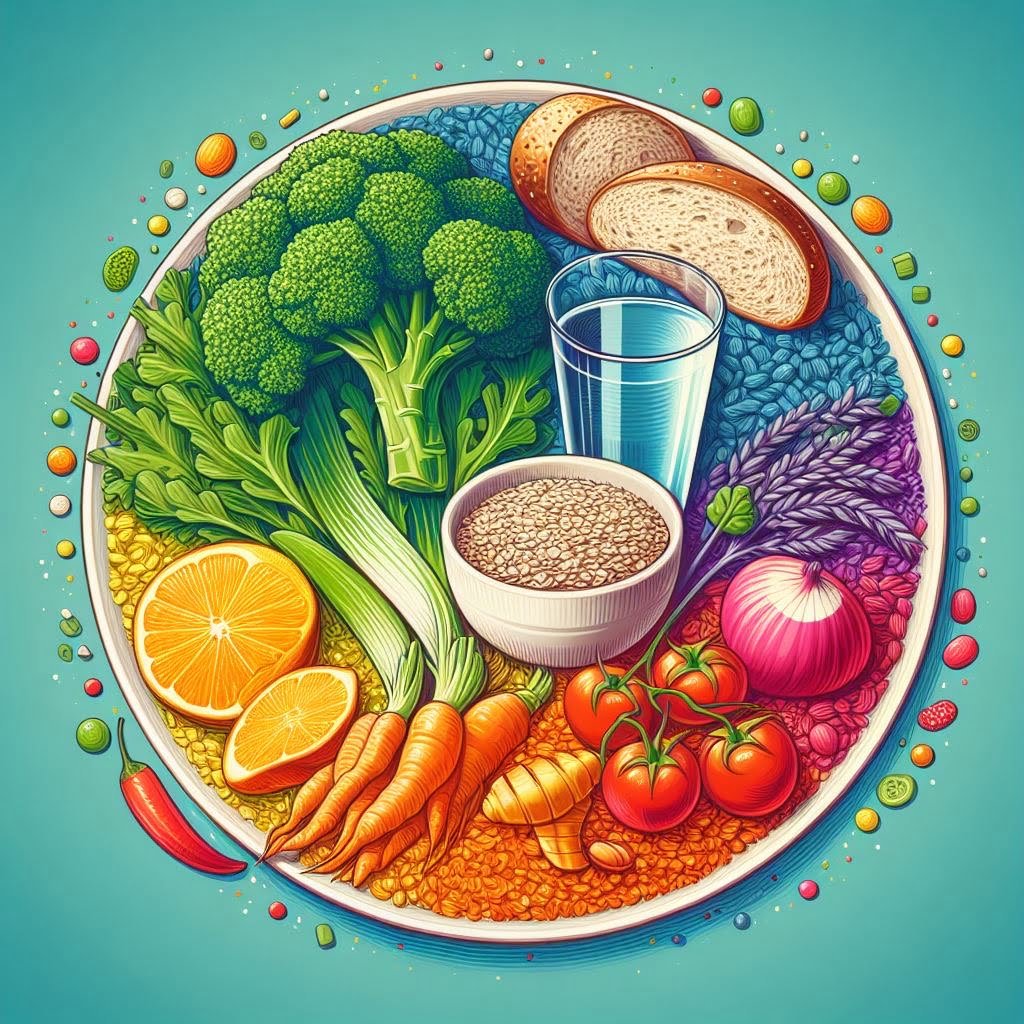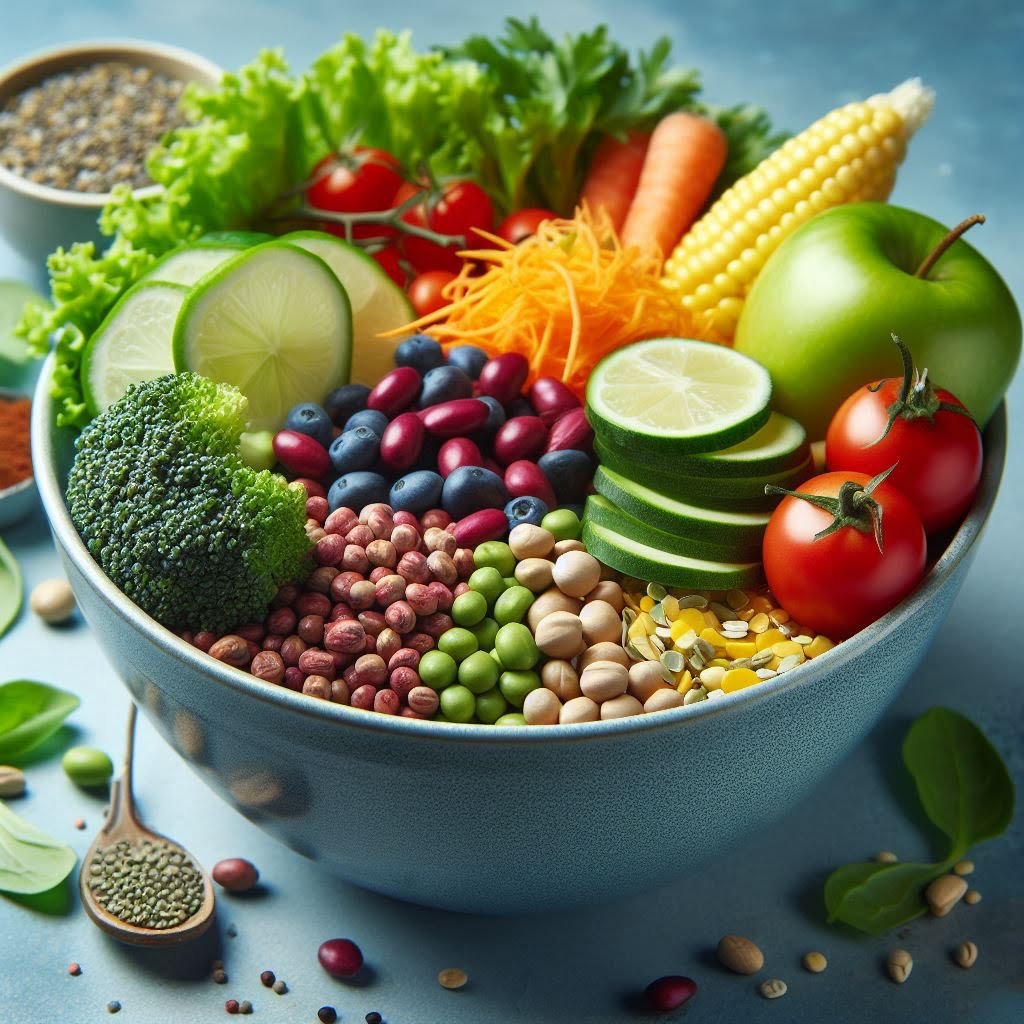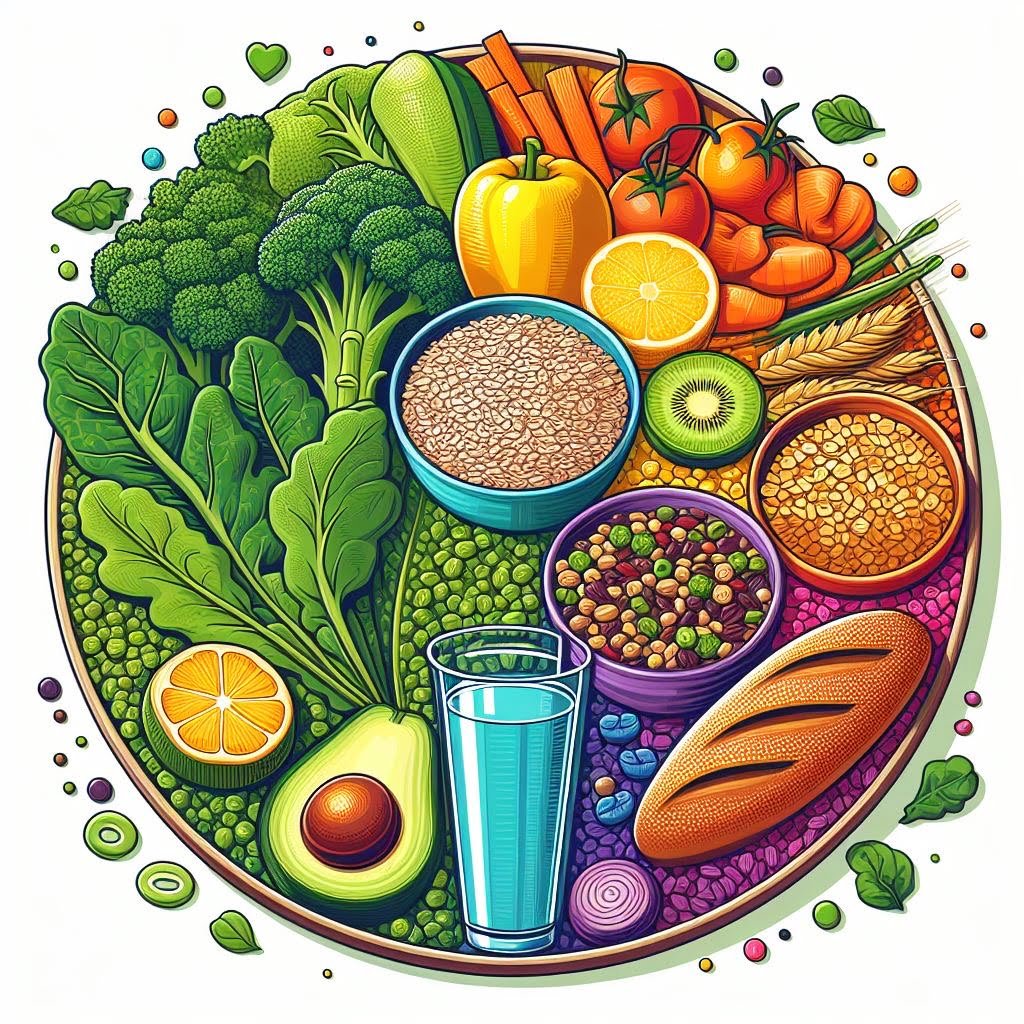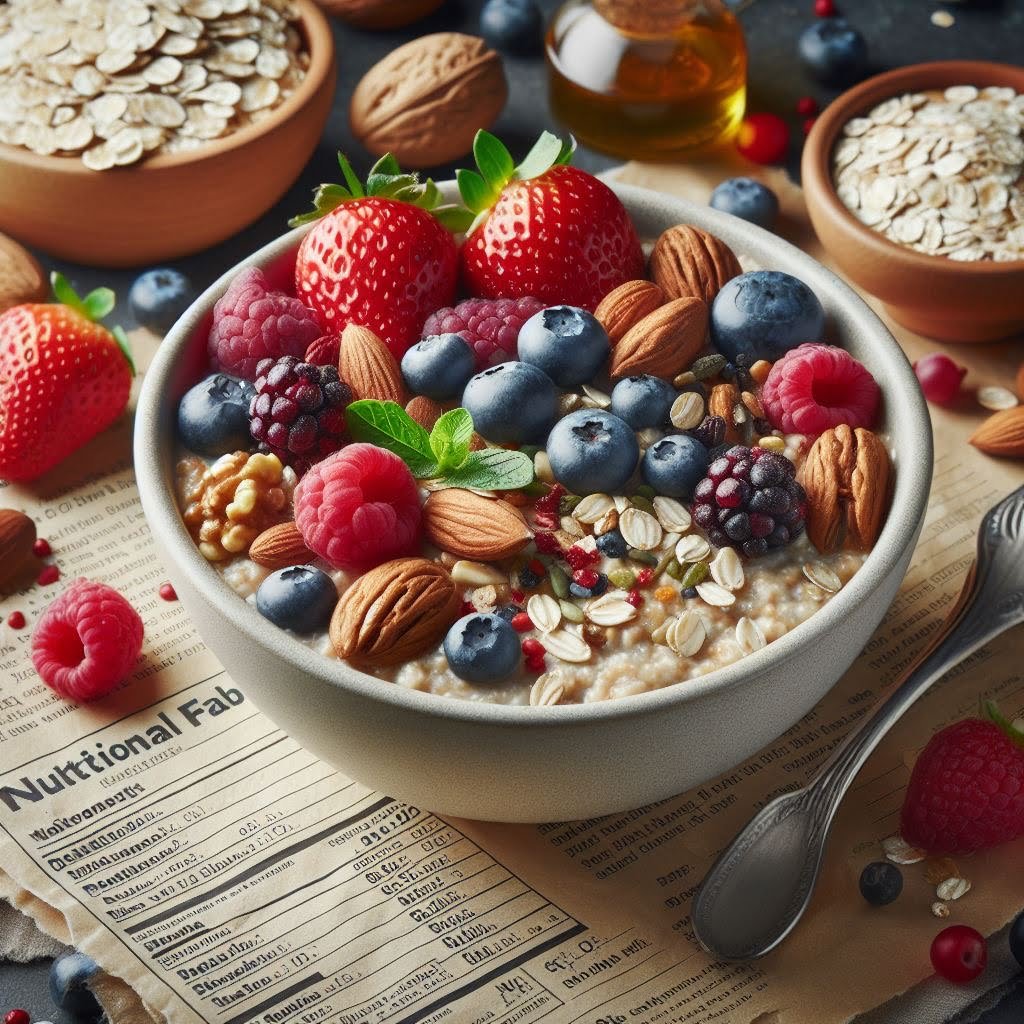Dietary fiber is an essential component in our daily diet. Although often overlooked, its regular consumption can have a significant impact on our overall health and well-being. In this essay, we will explore the importance of dietary fiber in foods and how we can easily and deliciously incorporate it into our daily diet.

What is dietary fiber?
Dietary fiber is a form of carbohydrate found in plant-based foods, such as fruits, vegetables, legumes, and whole grains. Unlike other carbohydrates, fiber is not broken down or absorbed in the small intestine, but passes intact through the digestive system.
There are two main types of dietary fiber: soluble and insoluble. Soluble fiber dissolves in water and forms a gel in the digestive tract, which helps slow digestion and maintain stable blood sugar levels. Insoluble fiber, on the other hand, does not dissolve in water and adds bulk to stool, facilitating regular bowel movement.

Benefits of dietary fiber
Dietary fiber offers a series of benefits for our health. Some of them include:
- Improves digestive health: Dietary fiber helps prevent or relieve constipation by adding bulk to stool and promoting regular bowel movement. It can also help prevent diseases of the digestive tract, such as diverticulosis and hemorrhoids.
- Weight control: Dietary fiber is known for its ability to aid in weight loss and appetite control. Foods high in fiber tend to be more satisfying and make us feel fuller longer, which can help reduce overall caloric intake.

- Regulation of blood sugar levels: Soluble fiber slows the absorption of sugar into the bloodstream, which helps maintain stable blood sugar levels. This is especially beneficial for people with diabetes or insulin resistance.
- Cholesterol reduction: Soluble fiber can help reduce levels of LDL cholesterol (the “bad cholesterol”) in the blood by binding to it and removing it from the body.
- Promoting cardiovascular health: By lowering cholesterol levels and maintaining stable blood sugar levels, dietary fiber can help prevent heart disease and promote good overall cardiovascular health.
- Prevention of chronic diseases: Regular consumption of dietary fiber has been associated with a lower risk of developing chronic diseases, such as heart disease, type 2 diabetes, and certain types of cancer.
Ways to incorporate more dietary fiber into our meals

Fortunately, incorporating more dietary fiber into our meals doesn't have to be difficult or boring. Here are some simple and delicious ways to increase our fiber intake:
- Increase consumption of fruits and vegetables: Fruits and vegetables are excellent sources of dietary fiber. Try to include at least five servings a day, and choose to consume them with the skin when possible, as the skin is usually rich in fiber.
- Choose whole grains: Whole grains, such as brown rice, oats, and whole wheat bread, are rich in fiber. By choosing whole grain products instead of refined ones, we can easily increase our fiber intake.
- Incorporate legumes into our meals: Legumes, such as beans, lentils, and chickpeas, are an excellent source of fiber and plant protein. Add them to salads, soups or stews to increase the fiber content of your meals.
- Healthy snacks rich in fiber: Opt for healthy snacks rich in fiber, such as nuts, seeds and dried fruits. These are perfect to carry with you during the day and will help keep your energy levels stable.
- Fiber supplements: If you're having trouble meeting the recommended daily fiber intake, consider taking fiber supplements. However, it is important to consult a health professional before starting any supplement.

Conclusion
Dietary fiber is an essential component in our daily diet. Not only does it help us maintain good digestive health, but it also plays an important role in preventing chronic diseases and managing weight. By incorporating more high-fiber foods into our meals and eating a balanced and varied diet, we can ensure we reap the benefits of dietary fiber and improve our overall quality of life.

Credit images: Bing Images Creator
Maybe you might like: Fruit and Vegetable Smoothie


